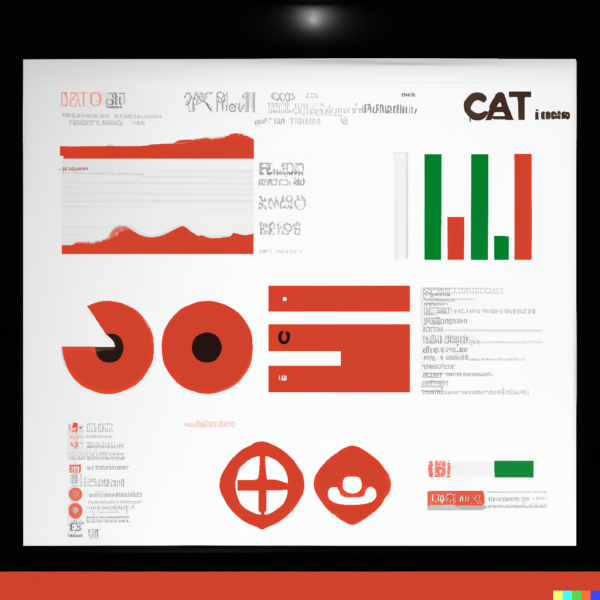Disclosure, I’m not that good at predicting the future. So this is not a list of predictions for 2020. I tend to find most of those useless anyway.
Rather, I tend to focus on analyzing trends that develop over time, as well as calling-out the BS on overhyped buzz.
Timing trends is hard, and I’m often optimistically early; and calling BS in a timely manner is critical as to avoid costly resource investments. Successful product execution begins as a combination of both.
So, I would consider this post as both a personal view of where I think things are heading in 2020, as well as a note to our customers, partners, shareholders and employees as to where my head is at, and where Xaqt will be focused in the coming twelve months.
Don't Believe the Hype
Before I dive into growth trends, let's establish what I don't believe will materially manifest this year. Here's a curated list of things that if you hit the snooze button for the next 12 months, it’s likely not much will have have changed. These were selected for their relative hype-scale in proportion to their actual returns as well as relevance to our space.
- "Do-it-Yourself Bot" tools, such as Amazon Lex, Google DialogueFlow, Azure LUIS, etc. - Creating impactful Customer Experiences with Conversational AI is hard. The entry level tools are OK for simple use cases, but we got burned on these in 2019, and so we decided to build our own Cognitive Voice Automation platform.
- 5G - This will be more fizzle than sizzle. If the large telecom providers (cough, Verizon/T-Mobile) need to spend millions of dollars in advertising to convince you that you need something, then be wary... There will be pockets of promise emerge, but in a world where many still lack access to even basic high speed internet, I'm not optimistic that 5G will revolutionize anything this year other than maybe some Super Bowl commercials.
- Blockchain - I'm still waiting for that killer use case that can’t be accomplished with less complexity and compute resources.
- Smart Cities - As I've said, this will transition to Digital Cities and Digital Transformation of Government.
- Generalized AI - Convolutional Neural Networks, Deep Learning, etc. are all powerful tools enabling new capabilities for organizations, however, avoid getting caught-up in buzzword bingo and start with the problem that you want AI to help you solve. In the next couple of years, AI will provide evolutionary benefits; in the next decade, it is likely to be revolutionary.
- Autonomous Vehicles...
Trends to Watch
At a macro-level, it seems that the acceleration of technology development is outpacing adoption. That delta is where I see the opportunity. Here's what I'm most excited about (in no particular order):
- The convergence of CRM and Voice - Both Salesforce.com and Zendesk announced deep integrations and partnerships with Amazon Connect in 2019. More players are starting to emerge here as well (Twilio Flex, Nexmo). I'm speculating that, over the long run, voice functionality becomes more embedded and ubiquitous across the call center application ecosystem. Albeit more virtualized and centralized, this reminds me of the pre-market consolidation of ACD vendors in the early 2000's.
- Connected Vehicles (CV) and Telematics Data - Autonomous Vehicles may still be a thing of the future, but Connected Vehicles are already here. The data generated from CV and Fleet Telematics can create new insights into how people move about the world, and more discretely improve everything from supply chain logistics to customer segmentation and modeling.
- Applied and Purpose Built AI - AI continues to be applied for solving problems in new and novel ways. Success starts with a deep domain focus and clearly defined objectives. This is creating a proliferation of new point solutions that will need to be integrated back into the enterprise.
- Data Privacy, Ownership and Use - The California Consumer Privacy Act went into effect 1/1/2020, and the rest of the U.S. is watching. Coupled with growing mistrust of the data-gopolies (Google, Amazon, Facebook, etc.) we might finally start to see some ripple effect changes with respect data privacy. Although, it's still unclear what that might be.
- The Cloud War between AWS, Azure and Google continues to drive more commoditization of core services and the acceleration of new functionalities. Xaqt is already enjoying better portability between cloud providers, as well as leveraging their investments into technologies such as Natural Language Processing and Understanding. I'll also shamelessly borrow a Jeff Bezos-ism and say that "It's Still Day One" for cloud migration and adoption across almost every dimension.
- Lastly, Unicorns are dying-off - We're finally seeing a reckoning and rationalization in the markets with respect to insane "Unicorn" valuations. Starting with Uber and ending with WeWork, the public markets are no longer buying into companies that are better at raising money than making it. This is good for all of us.
Bringing It Into Focus
Our lens for the year is Purpose Built AI.
In The AI Advantage, Thomas Davenport does an excellent job of summarizing the capabilities of Artificial Intelligence into three categories: Cognitive Insights, Cognitive Automation, and Cognitive Engagement. I think he's right, and we've adopted this framework to describe how we approach our capabilities and approach new opportunities. I'll refer to these as the "3 C's".
I believe Xaqt playing at the intersection of the 3 C's, along with our domain expertises positions us to create the most value for our customers and accelerate our growth. I will expand on each of these in the coming weeks.
- Cognitive Insights - Business Intelligence (BI) will begin to serve as a key entry point into Artificial Intelligence (AI). Xaqt's ability to integrate data from wherever it's at and apply data science to discover hidden insights will identify new opportunities to apply artificial intelligence and machine learning for our customers. These will inevitably lead to new products and services. As example:
- Xaqt's VeloCity platform creates Cognitive Insights for Connected Vehicles and Telematics Data that improve operational efficiencies for fleet operators, and can even predict Traffic Signal Timing issues.
- Our Manufacturing Yield Optimization algorithms are improving throughput and profitability of leading manufacturing companies.
- Cognitive Automation - Coupling Cognitive Insights with the ability to connect disparate applications and automate tasks enables the automation of repetitive work processes which create efficiencies and new opportunities for scale. It's early for us here, but this underpins our Cognitive Engagement strategy.
- Cognitive Engagement - With Cognitive Engagement, companies can communicate with customers and employees, using natural language processing chatbots, intelligent agents, and now Conversational AI based IVRs. The power of Xaqt's Cognitive Voice Automation platform combines elements from each of these categories. Our key to winning this market is our ability to train deeply in domains with Context.
- One thing is inevitable, Xaqt will continue to automate customer and employee interactions across various industries resulting in a larger percentage of all Contact Center interactions becoming Xaqt powered. Bet on it.
- Digital Cities and Infrastructure - As I've discussed, Cities and Real Estate Developers are shifting from Smart Cities and into outcome focused Digital Transformation. Xaqt's strong program management and Smart City legacy position us well to lead this market transition.
- We're launching (at least) three new cities this quarter and expanding our impact across our existing customers.
- Contact Center AI - Applying Artificial Intelligence across different aspects of Call Centers and Customer Experience is perhaps one of the single largest value creation opportunities I see. The ability to reduce costs and increase revenue across almost every customer touchpoint is massive. Stay tuned on this one, as Xaqt will become a household name here in 2020.
Over the past four years, Xaqt has developed core technology assets and domain expertise across Transportation, Geospatial Analysis, Connected Vehicle Data, Digital Cities, Call Center, Manufacturing and IoT. When we combine these with the "3 C's", we will create new value for our customers at scale. Much of this will come through our existing products, such as Cognitive Voice Automation and VeloCity, while emerging opportunities will be consultative and AI services led that ultimately result in new product offerings.
Join us on the Journey. I also welcome comments and feedback.




